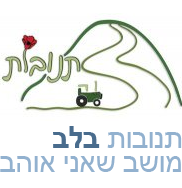Site & Source - Yanuv, T'nuvot
- יאיר ליאור
- Feb 21, 2022
- 2 min read
Yanuv, Tnuvot, what are the names' sources, and what do they mean?
These two localities are associated with the Lev Hasharon Regional Council.
It has been about 72 years since the first farmers clung to the fertile land that waited 1950 years for the descendants of the exiles to return and plant fruit trees that will yield the excellent, healthy, delicious, and highly sought-after citrus fruits in markets and overseas continents.
The Norwegian government donated the first huts in memory of 27 Jewish children who perished in the plane crash on board from Tunis to Oslo (the capital of Norway) on 20/11/1949.
About two years later, a settlement was established nearby, the founders of which were Jews who immigrated to Israel from Yemen, who also felt the fertility of the land of Israel, which bore fruit for the settling farmers.
The two groups chose to give an expression of "making fruit" for the name of the settlement intertwined within the Torah Portion "HaAzinu," which was composed by Moshe Rabbeinu near his passing away on 7 Adar, which was yesterday's Hebrew date, which was said:
: יַרְכִּבֵהוּ עַל בָּמֳתֵי אָרֶץ וַיֹּאכַל תְּנוּבֹת שָׂדָי וַיֵּנִקֵהוּ דְבַשׁ מִסֶּלַע וְשֶׁמֶן מֵחַלְמִישׁ צוּר (דברים פרק לב פסוק יג
He made them ride upon the high places of the earth, that they would eat the produce of the field. He let them suck honey from a rock, and oil from the mighty part of the crag.
The most significant food concern in Israel, called: Tnuva, was established about 96 years ago whose name expresses the output of a land flowing with milk and honey that longed to bear excellent fruit for the exiles who return to it and pour out their love for it.
Today, these localities are flourishing, and employment is diverse.












Comments